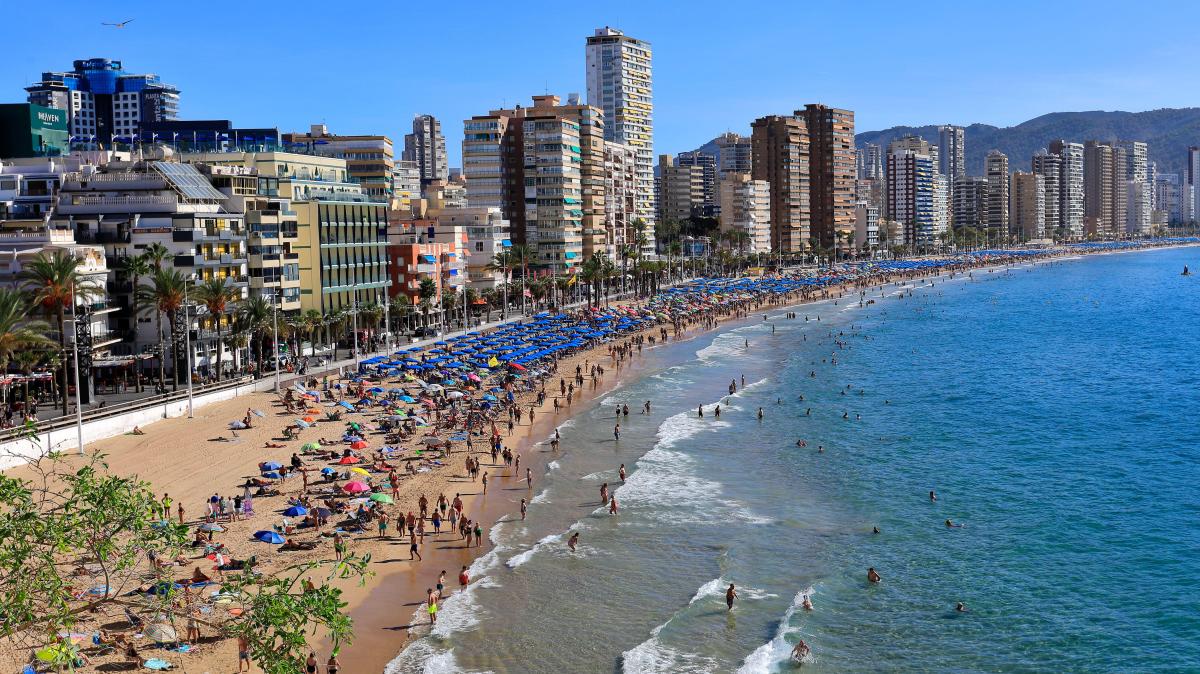For many of the 18 million Britons visiting Spain each year, the pattern of their trip is familiar: fly and flop with sun, sea and sangria.
Yet holidaymakers visiting the country should look further than their sunloungers, officials have said as they try to convince tourists there is more to the country than resorts.
Britons will be targeted with an advertising campaign — “Think you know Spain? Think Again” — which is designed to raise awareness of lesser-known destinations.
About 90 per cent of British tourists in Spain visit Andalusia, Catalonia, Valencia, the Balearics and the Canaries. As well as trying to get holidaymakers to visit different regions, the campaign aims to get those in the most popular resorts off their sunbeds and out exploring.
• Culture or beach? Pick Valencia, the city that does both
“Spain is much more than the islands and the coast,” said Manuel Butler, director of the Spanish tourist office in the UK. “This is about two things. Firstly, not chasing volume [in tourist numbers] but also showing how much is on offer here, such as the regions in the north of the country. We are showing how much differentiation there is [across the regions].”
The national tourist board is working with Jet2 and Tui, the UK’s biggest tour operators, to create itineraries that get people out of beach resorts.
Jessica Harvey Taylor, a spokeswoman at the Spanish tourist office, said: “What we are absolutely not doing is saying, ‘Don’t relax on your holidays, don’t enjoy our beaches’. What we are saying is there are other regions or for those regulars, ‘Why not spend a day exploring’. It could be a visit to a hilltop town, a trip to a local restaurant or a hike. It’s about showing more of what’s on offer.”
Magaluf has been working hard to attract more families
DAVID RAMOS/GETTY IMAGES
The pair were speaking on the eve of the annual Abta conference, which the trade body is hosting in the resort of Magaluf, Mallorca. Topics include over-tourism and how destinations can “move the dial” on the issue.
There have been a growing number of anti-tourist and over-tourism protests in Spain in recent summers as locals express anger at the number of arrivals and the cost pressures it puts on local housing.
In June about 8,000 Mallorcans demonstrated in the Balearics. People carried models of planes and cruise ships, plus posters reading “no to mass tourism” and “stop private jets”.
Protests against mass tourism in Palma last year
CLARA MARGAIS/ALAMY
And in June this summer
FRANCISCO UBILLA/REUTERS
The €30 million “Think you know Spain? Think Again” campaign is running across social media, targeting key consumers in the country’s main feeder markets. It aims to highlight the appeal of destinations such as Galicia and the Basque country.
Magaluf, traditionally popular with young Britons as well as stag and hen dos, has undertaken a decade-long project to try to change the image of the area. It includes increasing the number of four-star hotels and the price of accommodation.
Yet tourism bosses are still acutely aware that many arrivals at such resorts leave the vicinity before the return airport transfer.
• Why Spaniards can’t afford holidays in their own country
“Many people that visit Magaluf do not even know this town exists,” said Elisa Monserrat, the deputy mayor of Calvia, which includes Magaluf. She was speaking as she climbed a set of steps towards the neo-Gothic Catholic church in Calvia Vila, the municipality’s main town.
“We have 18 areas in Calvia, it is a big part of Mallorca, but most British people go to Magaluf or to [neighbouring] Palma Nova.”
Yet Monserrat said that overall the quality of tourists had improved in the past ten years. “There are more families now,” she said. “We have worked very hard to change the destination for the better. The hotels and beach clubs have been renovated and the city has refurbished the streets and the promenades.”



